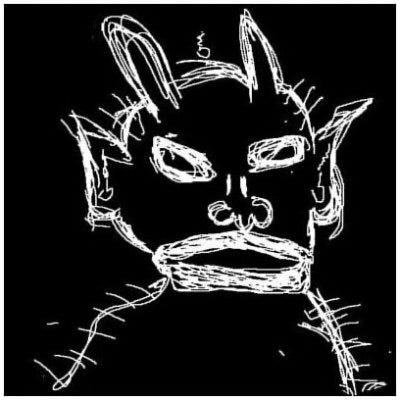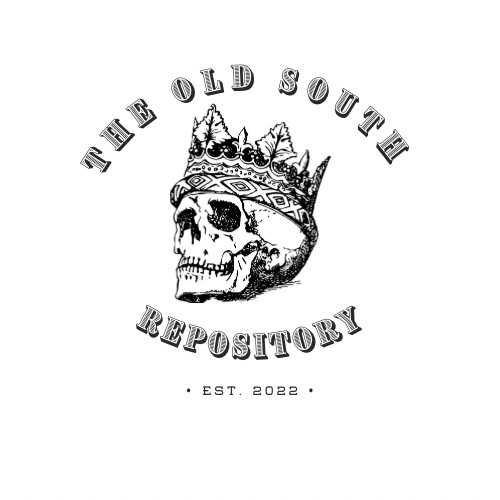To give something a name is to give it a nature
This was the creative capacity that Adam had been given in the Garden of Eden—the naming of created things. Yet, this function of Adam—his exercise of creative power—was merely the recognition of the works that God himself wrought in blood and bone and spirit. In other words, Adam’s contribution to creation was to be an observer and give recognition to the transcendent reality of being. Likewise, below you will read my observation and recognition of the organic development of something that is both old and new and beautiful…
Definitions are important
Before we go any further, we need to define our terms, Dixie, and Noir. As a writer, I believe that words and definitions are important, if they weren’t, you wouldn’t be reading this right now. So, Dixie: the colloquial name for the South (Per common usage), and Noir: a genre of crime film or fiction characterized by cynicism, fatalism, and moral ambiguity (Per Google definitions). You would think that the combination of these terms and their definitions would be an accurate appraisal of this new genre, but you would be mistaken.
Observations and Recognitions
I think the fundamental break between traditional Detective-Fiction/Hard-Boiled Noir like that of Raymond Chandler and what authors like p.c.m. christ and John Slaughter are doing lies in the differences of the Southern worldview… let me explain.
American crime Noir was a genre that was defined by the attitude and aesthetics of the dark underbellies of big cities like Chicago, New York, and Los Angeles in the 1920s and 1930s. Noir of this kind usually features a detective struggling to wade through the mire he is surrounded by, attempting to solve crimes in a corrupt police department with intelligent enemies and beautiful women who happen to have a foot in the same underworld that he is fighting against. The detective is usually a cynic, he sees no hope, but the fight against entropy keeps him going, at least until he is killed by his foil, or until his rampant alcoholism and nicotine addiction kill him.
In short, like all Puritans and many Yankees found in these cities throughout history, he is a systems man, and he is willing to fight the darkness as best he can within the parameters set for him by his moral and ethical code. What makes this kind of Noir is the fact that the system is unable to resolve these aberrations, and he is stuck, unable to find redress for the crimes he sees daily, but his ethical code won’t let him resort to self-help (taking justice into his own hands).
The Southern disposition doesn’t struggle with this aversion to deviation from the system. We are relations people, not systems people. What a Yankee would look at as blatant corruption in a small-town cop overlooking his cousin’s moonshine operation, a Southerner would be more likely to call it family loyalty. Likewise, if a teenage girl was raped in the North, the police would be expected to deal with the entirety of the aftermath, whereas, in the South, more than a few families would become judge, jury, and executioner. I believe this is the fundamental difference between Noir and Dixie Noir for no other reason than I believe that it is the difference between the dispositions of Northerners and Southerners. That is to say, Dixie Noir is about men who are not afraid to resort to self-help for the resolution to their challenges, justice system be damned.
However, the differences do not end there. If we look at the adjectives used by Google to describe Noir I think we can recognize that Dixie Noir is a subversion of its traditional counterpart. The words used to describe Noir by Google are cynicism, fatalism, and moral ambiguity. Now, both Give Up The Ghost and Crimson Veil, maintain a harsh grittiness and realism about the depths of human depravity, but I would not accuse either work of being cynical, fatalistic, or morally ambiguous.
Where traditional Noir is hopeless, Dixie Noir is hopeful. Where traditional Noir is resigned to its fate, Dixie Noir is willing to fight to achieve its aims. Where traditional Noir is morally ambiguous, Dixie Noir maintains the dichotomy of good and evil, and it is this dichotomy that makes the operation of the protagonist outside of the system justified. In traditional Noir, there is no greater good than the system or institution. That symbolic structure that the protagonist finds himself in is at war with darkness and itself, a mirror of the hero. In both examples of Dixie Noir that I’ve reviewed, the institution is secondary to justice. Both AR and JD are willing to break the law to do what’s right. Over and over again. That implies that there is an objective good and evil, an objective sense of justice, and an objective best way to fight the antagonists. The more I think about this as a unique genre, the more I think the protagonist could never be a cop or detective, at least not a cop or detective who wasn’t willing to take the law into his own hands. It would seem Dixie Noir is the genre for the righteous outlaws.
There is also the rejection of defeatism, there is no resignation to fate, there is only putting the world into order, one way or another. As Christopher Sandbatch said in a Xeet recently,
In 2025 the sad boys of literature are gonna bring back the happy ending.
Both of these books have “happy endings.” That is to say, they don’t end with hopelessness. I don’t know if either book has an ideal ending, they are still subject to the realistic and gritty consequences that dealing with the underworld comes with. Yet, the protagonists are not helpless, they are fighters who emerge from the underworld transformed not defeated.
Like I said, self-help vs systems.
There is also the matter of Aesthetics
Dixie Noir doesn’t have to take place in a big city, but it must take place in the South, or Southern adjacent regions. It is marked by the hot nights with loose women on balmy summer evenings, brooding reflections by the hero under the sound of rainstorms on old tin roofs, and bloated corpses floating up in the swamps that span across the Gulf coast. It incorporates the beautiful prose that the Southern Literary Tradition is known for, and isn’t afraid to use equally beautiful language to describe a murder in exquisitely visceral detail. It acknowledges the burden of the past on the South and her people as all great Southern works do. Not fearing the confrontation of her scars and their contemporary implications in the narrative.
I’ve been rambling for a while, I think this is just the beginning of a new Southern Literary movement and I very much look forward to seeing where it goes next.
If you want to follow the two pioneers of Dixie Noir that were mentioned above, you can find them here:
Please feel free to comment, I would be interested to hear your thoughts about Dixie Noir. Let me know if you think I am onto something or missed the mark. I am sure I will write more about Dixie Noir as time passes, but I wanted to address this phenomenon in real time.





Incredible. May this declaration be one that holds for a century of literature and story.